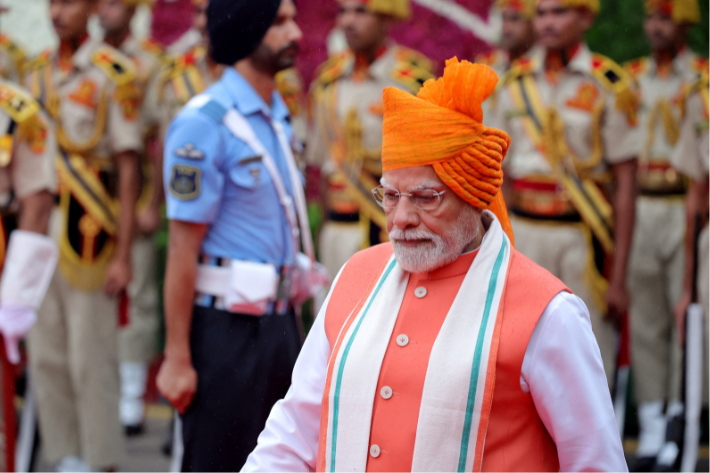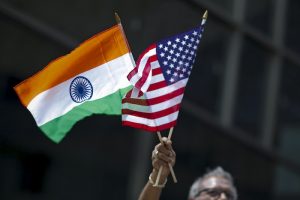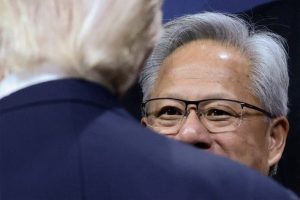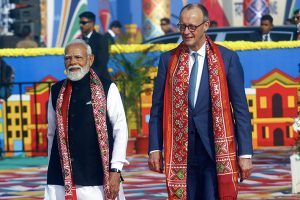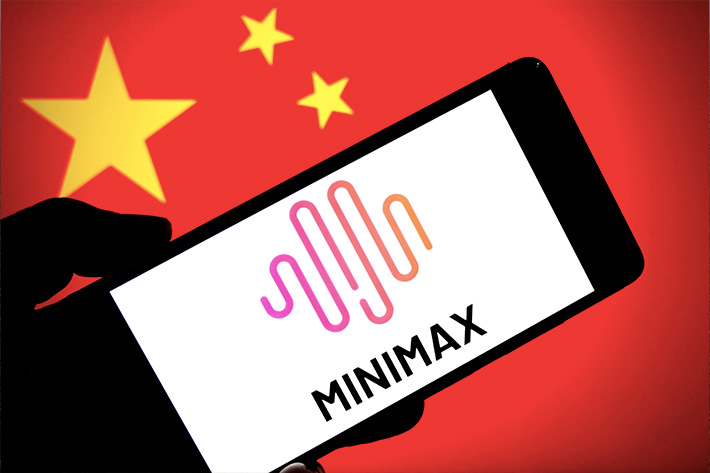Indian Prime Minister Narendra Modi has taken offence at Donald Trump’s tariff tirade against his country, and is giving the American president the cold shoulder, refusing to take his calls, multiple media reports have claimed this week.
The latest report saying this was from German newspaper Frankfurter Allgemeine Zeitung (FAZ), which said on Tuesday that Modi had refused to speak to Trump, even though the US President made “four attempts in recent weeks to get the Indian Prime Minister on the phone.”
“But he has refused to speak,” the report said, without citing the source of its information.
Also on AF: Trump’s 50% Tariffs on Indian Imports Hits Jobs, Bilateral Ties
Trump’s 50% levies on Indian exports, which include a 25% tariff as penalty for buying Russian oil, go in effect today.
Indian officials are yet to comment on the FAZ report. An official spokesperson of the Mumbai arm of the Bharatiya Janata Party said in a post on X, however, that “Modi’s missed calls aren’t an accident. They’re a message.”
‘India won’t be bullied’
“India won’t be bullied, and it won’t choose sides. India is playing its own game – and playing it smart,” spokesperson Suresh Nakhua wrote.
Meanwhile, prior to the FAZ report, Japan’s Nikkei Asia also reported on Monday that Modi was no longer communicating with Trump.
“Trump recently attempted multiple times to call Modi in search of a compromise. But the Indian leader has consistently refused to take the calls,” Nikkei Asia reported, citing Indian diplomatic experts.
On Wednesday, meanwhile, India’s mostly nationalistic media carried wide coverage of the FAZ report but none of them managed to get a comment out of New Delhi on it.
The country’s largest English news daily, The Times of India, quoted an unnamed “key diplomat” as saying it was not “Modi’s style to negotiate details over the phone.” The paper said the diplomat made those comments “in a background conversation earlier this month.”
Meanwhile, it cited a separate source as saying it was “possible Modi ducked the call to avoid the outcome of the conversation being misrepresented.” That remark refers to Delhi’s rejection of Trump’s claim that he “negotiated a ceasefire between India and Pakistan” after a conflict erupted over a deadly attack in Kashmir in May.
But a former Indian intelligence chief rejected the FAW and Nikkei reports in a remark on X, saying it was the “usual psy-war narrative suggesting Trump is being reasonable and big-hearted but Modi is not.”
‘Modi being cautious’
According to FAZ, Modi’s decision to not speak with Trump stems from “anger and caution” — the former due to Trump’s offensive jibes about India, saying it had a “dead economy.”
The Indian PM is also being cautious because of how negotiations between Trump and other countries have proceeded, FAZ reported. The paper cited the example of Vietnam, noting that negotiations were only conducted via phone calls between Trump and General Secretary Tô Lâm.
But without reaching an agreement, Trump proceeded to announce on his social media platform that US and Vietnam had reached a trade pact, FAZ reported.
“Modi doesn’t want to fall into the same trap,” the report said.
As Indian media has noted, some of Modi’s caution is also likely rooted in Trump’s insistence that he played a role in negotiations between India and Pakistan in May, following the terror attack in northern Kashmir state, in which 26 civilians were killed.
Trump’s claims “incensed” Modi, Nikkei reported, citing Indian officials.
For years, consecutive Indian governments have rejected foreign intervention in their mostly bitter ties with Pakistan. Trump’s claims would signal a break from that policy by Modi, which is unlikely to be received well in the country. That would explain Indian officials’ incessant rejection of claims of any mediation by Trump, which reportedly soured the American president’s approach to trade talks with India.
India’s foreign minister S Jaishankar, meanwhile, has gone as far as telling parliament that there were no calls between Modi and Trump between April 22 and June 16 — the period of hostilities between India and Pakistan.
“There wasn’t even one phone call between President Trump and Prime Minister Modi,” in that period, he said.
Political play
The German report also noted it would be “tricky” for Modi to make concessions to Trump because of the increasing anti-US sentiment in India.
As Asia Financial has previously reported, Modi’s more than a decade-long reign over India is firmly rooted in a stunning wave of nationalism, and Trump’s recent attacks have sparked anger across the country.

Trump’s insistence that India must open its markets for American agricultural exports is also a big ask, because it would directly impact Modi’s core vote bank spread across northern India. So any concessions on that front from New Delhi are unlikely.
Modi, meanwhile, has maintained in speeches at home that he will protect the country’s farmers at all cost. It is an assertion he has repeated several times this month — most recently on Monday, while addressing a political rally in his home state of Gujarat.
“Interests of farmers, cattle rearers and small-scale industries remain paramount for us,” Modi said in his speech. “Pressure on us may increase, but we will bear it,” he added.
- Vishakha Saxena
NOTE: Minor edits were made to this report on August 28, 2025.
Also read:
How Trump Lost The Plot On India
India To Get China Rare Earths As Trump Tariffs Bring Rivals Close
Tax Reforms Boost Indian Markets Even As US ‘Calls Off’ Trade Talks
Trump’s Tariffs Spur Calls to Boycott American Goods in India
India Wants US Ties With Mutual Respect, Says Arms Deals Still On
Trump Ramps Criticism of India: ‘Backing ‘Russian War Machine’
India’s Modi Shows His Preference: a Free-Trade Pact With Britain
India Now the Biggest Source of Smartphone Exports to the US
Trump’s Dealings With Pakistan Has India Slowing Tariff Talks
Can Trump Tariffs Deliver a Significant ‘Moment’ for Asia?




